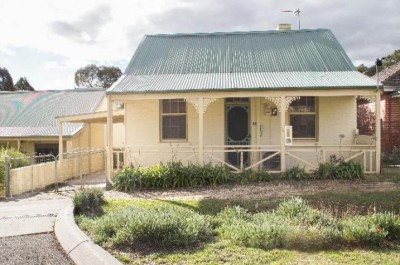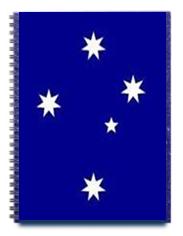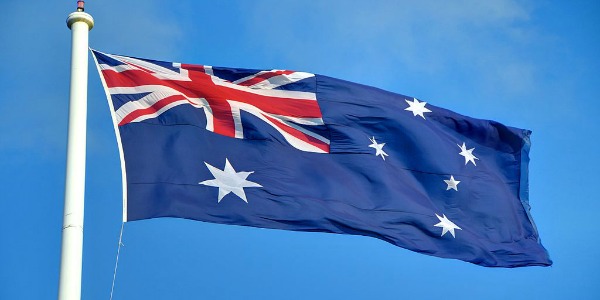This Blue Paper is a draft prescriptive standard for Australianness, arising out of multiple challenges to Australian values by foreign influences, by anti-Australian sentiment and by our governments kowtowing to unethical and backward cultures that are undermining Australian traditional values. This is a feeder document toward nationalist policy and subsequent draft proposed law, inviting input and debate by Australians.
Nationalist Initiatives
Australian Culture
- Australians are perpetually a distinct national people of the Australian Continent and its territories.
- The term ‘Australian’ is to perpetually hold the legal definition (nationally and internationally) to ONLY include those defined as:
- Aborigines
- Torres Strait and Tiwi Island peoples
- Australian Born of European descent – the largest group
- Naturalised Australian Citizens who may assimilate to the larger group.
- All other persons located in Australia are legally deemed to be temporary nominal guests of host Australians.
- Australian Ethical Values are the only values standard that prescribes the culturally acceptable beliefs, attitudes, mores, behaviours and practices of Australians.
- Australia’s envied way of life has been traditionally underpinned by Australian Ethical Values, which are drawn from historical foundations, common shared knowledge and experiences of Australians within Australia through Australian native elders and ancestral ways, as handed down intergenerationally (1788-1972).
- Those respective Aboriginal and Torres Strait and Tiwi Island groups who hold an indigenous right to adhere to a traditional way of life, do so within the ethical and legal bounds of Australian Ethical Values. To wrongly accept otherwise would unacceptably divide Australia into separate nations.
- When the divisive Whitlam Labor government came to office in 1973, it subsequently and undemocratically dictated that all migrants, regardless of origin, be eligible to obtain citizenship after three years of permanent residence, ratified all international agreements relating to immigration and race and issued policy to totally disregard race as a factor in selecting migrants. All relevant legislation at all levels of Australian government enacted since Whitlam came to power on December 5, 1972, is subject to revocation.
- Australian Ethical Values and this Australian Values Standard comprise the specific prescription of what may be collectively termed the Australian Culture.
- Australian Culture represents the dominant and overriding national social culture of Australia, annulling all other cultural influences where they may conflict.
- Australian Culture is exemplified by its traditional citizens in its language, social habits, celebrations and events, the arts, the humanities, in literature, music, painting, philosophy, cuisine, and clothing.
- Australian Ethical Values and the Australian Values Standard are subject to formal, public and legislative ongoing review by Australians only by referendum available to Australian Citizens.
- Develop and formulate a set of Australian social values and standards that are to be debated broadly across the Australian citizenry without intrusion from foreigners or foreign values, then to be enshrined in law
- This law is to form the principled uncompromising minimum values and standards basis for prescribing all Australian national laws
Our Prevailing Cultural Heritage
The Australian Prevailing Culture is prescribed from its unique post-1788 history, while drawing upon wisdoms of pre-1788 Aboriginal people. Australia has ancient cultural history distinctly by Aborigines, Torres Strait and Tiwi Island peoples. Since 1788, these diametrically different cultures have met and in some cases there has been conflict, cultural exchange, and some biological mixing which has caused inter-cultural complexities.
The Australian Prevailing Culture is prescribed from primarily British cultural settlement from 1788 and secondly from Christian Europeans generally who with their cultures commenced settlement in the colonial period also and together built the Australian nation. Christian European is recognised as the culture of European countries descended from Christian heritage only. It is held that the European cultures, which comprise Anglo-Celtic, Greco-Roman, Nordic, Latin, Germanic, Hellenic and Slavic ethnicities were the basis upon which an Australian identity and culture came into being.
Australia’s dominant and only national language is English. English is the only language to be taught in Australian schools from kindergarten to matriculation, except in special internal territories which have recognised ancient cultural history held distinctly by Aborigines, Torres Strait and Tiwi Island peoples. In such territories the traditional indigenous languages are taught and used respectively by these peoples.
Since British sovereignty was established in Australia in 1788, Australia has become a Western European society in the Oceania Region, distinct from the ethnic regions of the Indian Ocean, Asia and the Pacific.
Australians are united by an overriding and unifying commitment to Australia, irrespective of their European, Aboriginal or Torres Strait and Tiwi Island ethnic background.
All Australians, and those invited to be Australians, are expected and required to uphold Australia’s laws, social mores and norms, moral principles and shared values that support Australia’s way of life.
Australians value the preservation of the Great Australian Dream of house and land ownership, no matter how modest. But to be denied freehold is to deny an Australian his/her cultural right!
 Australian Standard
Australian Standard
But ethnic high-rise, semi-detached and strata title are anti-Australian and deserve demolition.
UnAustralian
Australian Ethical Values
Australian Ethical Values are the only values-standard that prescribe the culturally acceptable beliefs, attitudes, mores, behaviours and practices of Australians. It is recognised too that we Australians practice these contrary to the emerging globalism and anti-democratic spirit of those who govern us.
These values are
- Adherence to the Ten Commandments;
- Fair dealing, openness and honesty in all communications and dealings, and an intolerance of corruption and bribery;
- Personal integrity and the moral courage to do the right thing, keeping promises and to reliably fulfilling commitments – a wholeness of character demonstrated by consistency between thoughts, words and actions.
- Strive to be fair and just in all dealings.
- Respect for and adherence to the rule of law – with an independent judiciary, and application of the single system of national law equally to all people, and support for law and order. Respect for private property and the right to the Great Australian Dream of house and land ownership;
- Individual resourcefulness, personal enterprise and small business opportunity;
- Work ethic and the pursuit of excellence all the time in all things, in education and self-improvement;
- Peaceful and lawful settlement of disagreements without recourse to violence;
- Separation of Church and State – independence of the state from religious institutions and religious tests;
- The predominance of the English language as the basis for national dialogue, political activity, broader community interaction, and law – with due recognition of Australia’s unique vernacular, colloquialism and colourful language which continue to evolve;
- The sanctity of human life – respect for human rights and dignity, non-discrimination, and compassion for the disadvantaged and victims of misfortune;
- Respect for equal worth, dignity and equality of opportunity;
- Equality of men and women before the law and in society;
- The sanctity of the rights of the child;
- Contemporary First World Civilised Culture – so culturally distinct from, and in many ways our social values, norms and mores are incompatible with traditional African, Asian, Arab, Pacific Island and otherwise Third World and primitive cultures;
- Fairness and a cautionary tolerance toward introduced ideas from afar, so long as they do not breach Australian Ethical Values or Australian Laws;
- Commitment to pursuing excellence in performing duty and work to First World standards;
- Respect for democratic freedoms – of secular democratic government, freedom of the individual, of political opinion, freedom to read, write and publish material except to the extent that such material may threaten the safety of others, freedom of political and other association in civil society, free and secret voting, regular elections, acceptance of the majority vote, and self-restraint by victors in the use of democratic power; freedoms of speech, the press, association, assembly, universal suffrage, access to government information, and relaxed dress standards;
- Egalitarian Meritocracy – valuing the “fair go”, merit, hard work, commitment, the right to be respected and treated in a fair manner, a classless society, respect for elders past and present;
- Pride in Australia’s national identity, heritage and national achievements. A deep collective bond and loyalty to the Australian Nation and to fellow Australians, respect for Australia’s sovereignty and its heritage enshrined in the ANZAC and Kokoda spirit;
- Peacefulness, a strong sense of civic responsibility and volunteerism, pursuit of ‘the public good’, respect for Australian Laws, courts and law enforcement agencies;
- A spirit of egalitarianism that embraces tolerance, mutual respect, and compassion for those in need and deserving;
- Faithfulness in standing by one’s mates under adversity, support for the disadvantaged and for the underdog;
- Respect for Australian social etiquette including adherence to civility and civil decency;
- Intolerance of cruelty;
- The Universal Golden Rule of “do unto others as you would have them do unto you”;
- The sanctity of the 8 hour day, the premium value of weekend leave from work, and the value of public holidays based upon the Christian calendar.
- An easy-going, free-thinking and self-confident nature.
Supportive Precepts Linked to Evidence




